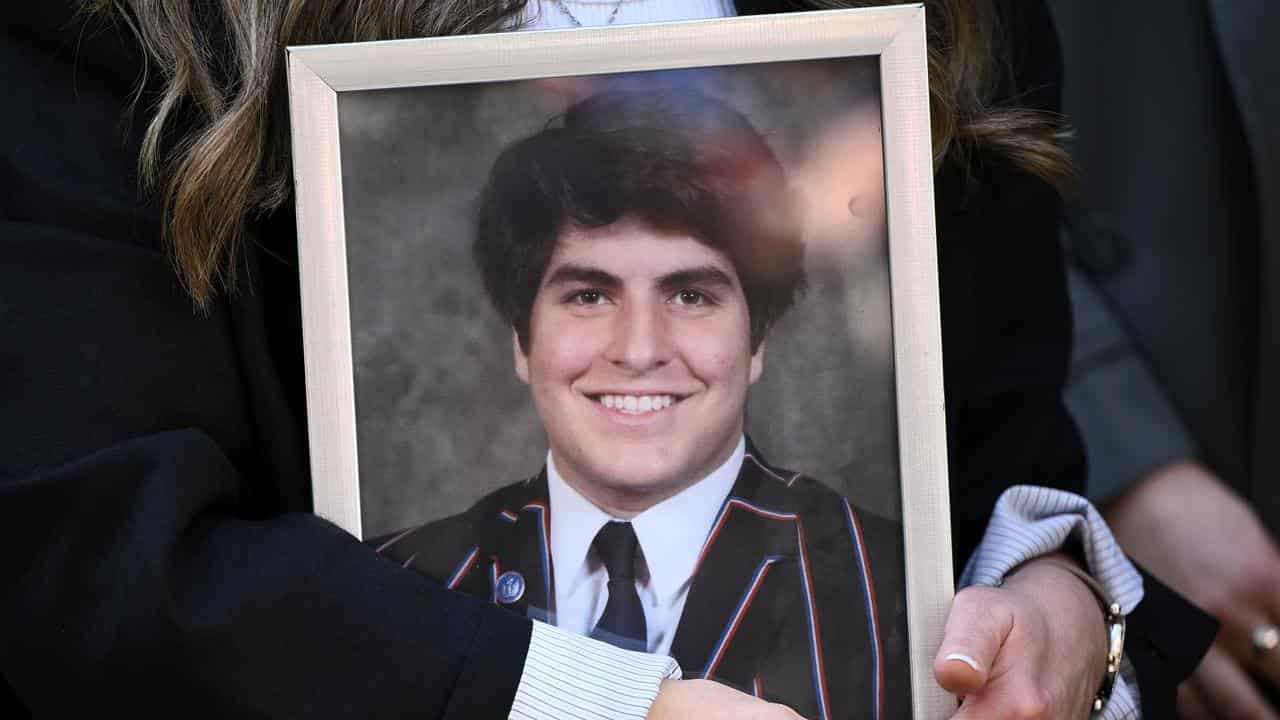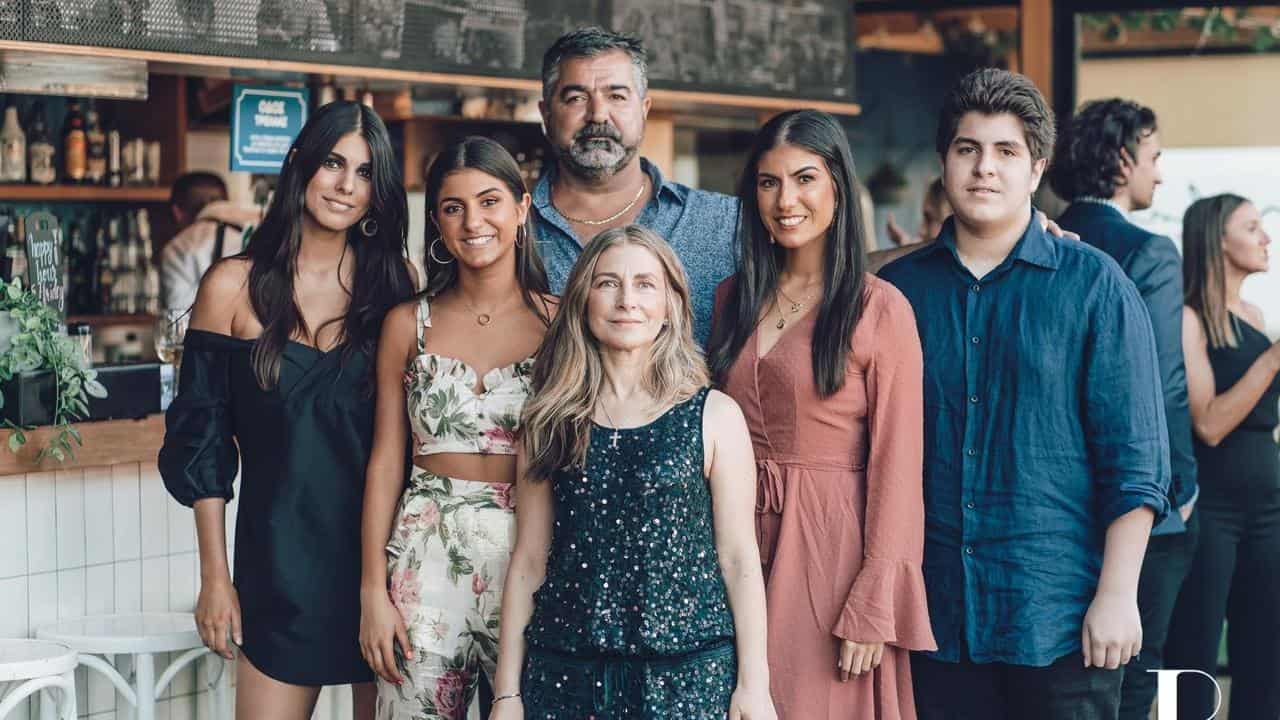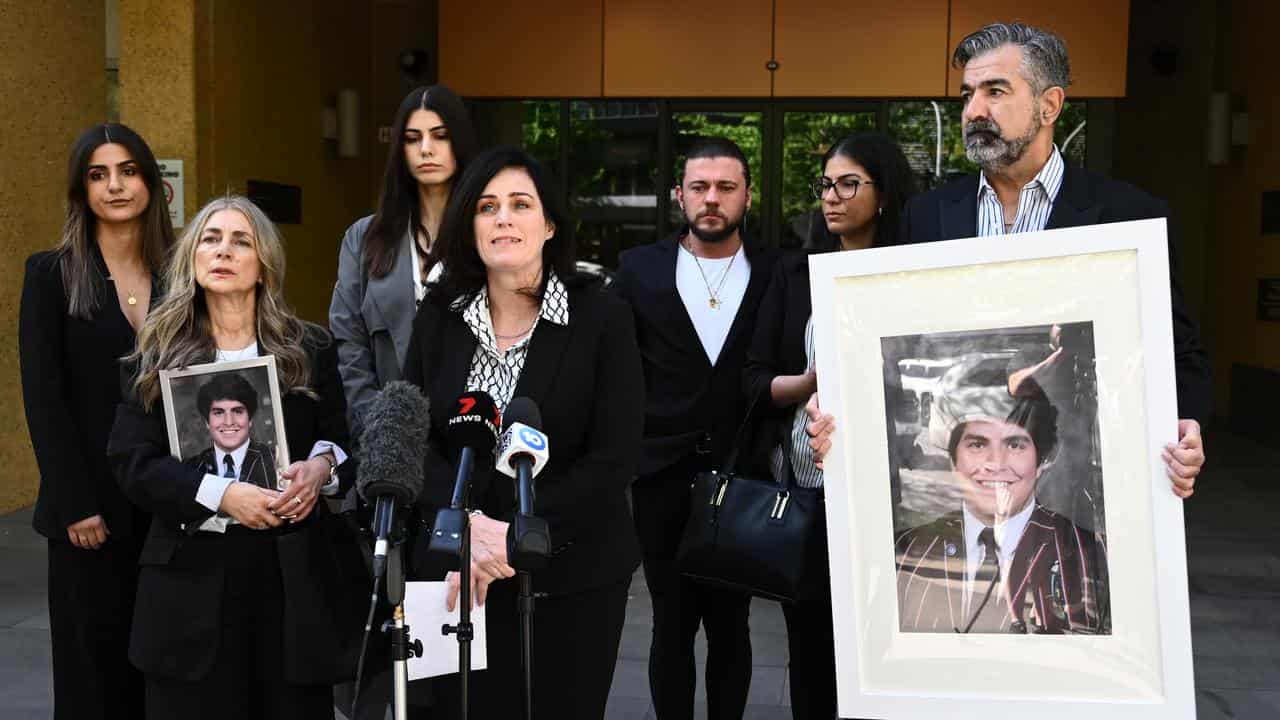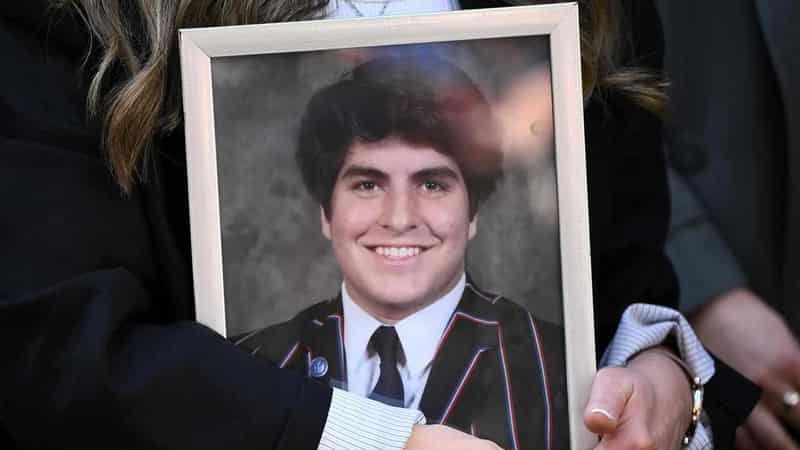
A wheeze James Tsindos developed as he was wheeled into a hospital was the "sliding doors moment" healthcare staff missed which could’ve saved his life, a globally renowned doctor has said.
James suffered anaphylaxis after consuming a burrito bowl containing a sauce made from cashews he ordered off the now-defunct Deliveroo food delivery app on May 27, 2021, an inquest was told on Friday.
The 17-year-old began experiencing allergy flare-ups from his sensitivity to nuts, including swollen lips, nausea, tingling in the throat and abdominal cramps, prompting his father to call an ambulance.
Paramedics arrived at their Brighton home about 2.50pm, designating him a potential anaphylaxis case despite finding no rashes or signs of troubled breathing.
Paramedic Jonathon Hammond administered two doses of adrenaline five minutes apart which eased most of James' symptoms, withholding a third due to lack of symptoms, and he was transferred to the nearby Holmesglen Private Hospital as a precaution.
"He appeared comfortable (during the ambulance ride) and able to speak in clear sentences about school and interests," Mr Hammond told the Coroners Court in Melbourne.
As he was wheeled through the hospital doors at 3.44pm, James told the paramedics he was "wheezy". He then used his asthma puffer 15 times.
The teenager was placed in an isolation room while Mr Hammond engaged in a handover with the nurses, which has been a subject of contention over whether the nurses were told about the wheezing symptom.
"It was one of the first things I (told them) and that's why the nurse left to get the puffer spacer," Mr Hammond said.
At 4.10pm he was placed on oxygen therapy and administered with adrenaline and saline but began having trouble breathing.
He was transferred to the resuscitation ward and within a minute became unresponsive before entering cardiac arrest.

Doctors and nurses spent 40 minutes trying to resuscitate James, longer than what would usually occur given his young age.
He was transferred to The Alfred but his brain injury from the cardiac arrest meant James never recovered.
His life support was turned off on June 1.
The inquest is examining whether the medical care provided to James was appropriate and if there are opportunities to prevent the circumstances occurring again.
He was admitted to hospital triage under category 3 which signalled an urgent case that needed medical care within 30 minutes.
But globally renowned intensive care clinician Warwick Butt told the court James' initial condition warranted an emergency category 2 response where medical care was provided in 10 minutes.
"The moment that he got a wheeze, that was not a new symptom, but it was a progression of the disease signalling the adrenaline wearing off," Dr Butt said.
"That was a huge red flag, a sliding doors moment."

Counsel assisting Rachel Ellyard asked the expert whether an earlier adrenaline shot and a higher dosage at the hospital would have led to a better survival prospect.
“It’s more likely than not,” Dr Butt responded
"This event was preventable."
James' devastated family are seeking answers for what happened to their beautiful boy who was filled with laughter, joy and hope and whether his death could have been prevented, lawyer Shari Liby said outside the court.
“The Tsindos family are very committed to ensuring that systems are put in place so that no other family suffers a single loss under these kinds of circumstances,” she said.
UberEats rolled out new features in June, including disclaimers that tell consumers if restaurants can accommodate food allergy requests.
Menulog urges customers to contact the restaurant to relay the details of their allergies, while DoorDash users can add special instructions and restaurants, an option for allergen requests.









